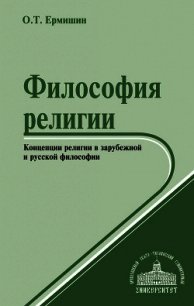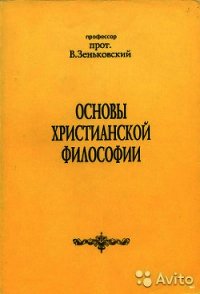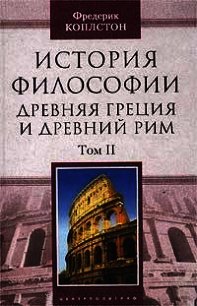История патристической философии - Морескини Клаудио (книга жизни txt) 📗
По Иустину: L. Alfonsi. Giustino nella tradizione platonico–aristotelica // «Rivista di Storia della Filosofia» 1 (1946). P. 229–234; C.D. Allen. Revelation, Truth, Canon and Interpretation. Studies in Justin Martyr's dialogue with Trypho. Leiden, 2002; C. Andresen. Justin und mittlere Platonismus // ZNTW 44 (1952—1953). P. 157–195; Idem. Logos und Nomos. Berlin, 1955; L.W. Barnard. Justin Martyr. His life and thought. Cambridge, 1967; D. Bourgeois. La sagesse des anciens dans le mystere du Verbe. Evangile et philosophie chez saint Justin philosophe et martyr. Paris, 1981; H. Chadwick. Early Christian thought and the classical tradition. Studies in Justin, Clement and Origen. Oxford, 1984; A.J. Droge. Justin Martyr and the restoration ofphilosophy //CH 56(1987). P. 303—319; M.J. Edwards. Justin’s Logos and the Word of God // J ECS 3 (1995). P. 261—280; Idem. On the platonic schooling of Justin Martyr / / JThS42 (1991). P. 17—34; M. F0dou. La vision de la croix dans Voeuvre de saint Justin “philosophe et martyr” // RecAug 19(1984). P. 29—110; E.R. Goodenough. The theology of Justin Martyr. Jena, 1923; R. Holte. Logos spermatikos. Christianity in ancient philosophy accordingto St. Justin's apologies //«Studia theologica» 12(1958). P. 109–168; N. Hyldahl. Philosophie und Christentum. Eine Interpretation der Einleitung zum Dialog Justins. Kopenhagen, 1966; D. Minns. Thewillofthe Father and the obedience ofthe Son in the writings of Justin Martyr and Irenaeus (дисс.). Oxford, 1984; C. Nahm. The debate on the “Platonism ” of Justin Martyr // SecCent 9 (1992). P. 129–151; R.A. Norris. God and World in Early Christian Theology. A study in Justin Martyrf Irenaeus, Tertullian and Origen. London, 1966; J.P. Martin. El Espiritu Santo en los origenes del cristianismo. Estudiosobre I Clemente, Ignacio, I! Clemente у Justino Martir. Zurich, 1971; E.F. Osborn. Justin Martyr. Tubingen, 1973; Idem. Justin Martyr and the Logos Spermatikos // «Studia Missionalia» 42 (1993). P. 143—159; J.M. Pfattisch. Der Einfluss Platos auf die Theologie Justins der Martyrers. Paderborn, 1910; R.M. Price. Arethere u Holy pagans ”in Justin Martyr? // Studia Patristica 31(1996). P. 167—171; N. Pycke. Connaissance rationelle et connaissance de grace chez Saint Justin // «Ephemerides Theologicae Lovanienses» 37 (1961). P. 52—85; B. Seeberg. Die Geschichtstheologie Justin des Martyrer // ZKG 58 (1939). P. 1—81; C.J. de Vogel. Problems concerning Justin Martyr. Did Justin find a certain continuity between Greek philosophy and Christian faith? // «Mnemosyne» 31 (1978). P. 360—388; J.C.M. Van Winden. An early Christian philosopher. Justin Martyr's Dialogue with Trypho, chapters one to nine. Leiden, 1971; M.O. Young. Justin Martyr and the death of souls // Studia Patristica 16(1985). P. 209—215; Idem. Justin, Socrates and the Middle Platonists // Studia Patristica 18 (1989). P. 161—165.
По Татиану: L. Alfonsi. Echi del giovane Aristotele in Taziano // REAug 2 (1956). P. 251—256; S. Di Cristina. Lidea di δύναμις nel De mundo e nelVOratio ad Graecos di Taziano // Aug 17 (1977). P. 485—504; M. Elze. Tatian und seine Theologie. Gottingen, 1960; J.P. Martin. Taciano de Siria у el origen de la oposicion de materia у espiritu // «Stromata» 43 (1987). P. 71 — 107; E. Norelli. La critique du pluralisme grec dans le Discours aux Grecs de Tatien // Pouderon — Dor6. Цит. изд. P. 81–120.
По Афннагору: L. Alfonsi. Motivi tradizionali del giovane Aristotele in Clemente Alessandrino e in Atenagora // VChr 7 (1953). P. 129–142; L.W. Barnard. Athenagoras. A study in second century Christian apologetic. Paris, 1972; M. Giunchi. Dynamis et taxis dans la conception trinitaire d’Athenagore // Pouderon — Dor0. Цит. изд. P. 120—134; В. Pouderon. Athenagore d’Athens, philosophe chretien. Paris, 1989; Idem. Le De Resurrectione d'Athenagore face a la gnose valentinienne // RecAug 28 (1995). P. 145—183; Idem. D’Athenes a Alexandrie. Etudes sur Athenagore et les origines de la philosophie chrftienne. Louvain–Paris, 1997.
По Феофнлу Антиохийскому: J. Bentivegna. A Christianity without Christ by Theophilus of Antioch // Studia Patristica 13 (1975). P. 107—130; A. Davids. Hesiode et les prophetes chez Theophiled’Antioche// H.J. Maur — L. Bakker — A. van de Bunt — J. Waldram (изд.).
Fides sacra те п ti, sacramentum fldei. Studies in honour of P. Smulders. Assen, 1981. P. 205–210; J.P. Martin. La saggezza creatricesecondo Teofilo di Antiochia e isuoisilenzi cristologici //Aug 32 (1992). P. 223–235; P. Nautin. Ciel, pneuma et lumiere chez Theophiled’Antioche // VChr 27 (1973). P. 165–171; R. Rogers. Theophilus of Antioch: the life and thought of a second–century bishop. Lanham, 2000.
По Иринею: Y. de Andia. Homo vivens. Incorruptibilite et divinisation de Vhomme selon saint Irenee de Lyon. Paris, 1986; Eadem. Irenee, theologien de Vunite // NRTh 109 (1987). P. 31–48; T.A. Audet. Orientations theologiques chez Saint Irenee // «Traditio» I (1943). 15–54; A. Benoit. Saint Irenee: Introduction a I’etude de sa theologie. Paris, 1960; R. Berthouzoz. Liberte et Grace suivant la theologie d’ Irenee de Lyon. Le debat avec la gnose aux origines de la theologie chretienne. Paris, 1980; N. Brox. Offenbarung, Gnosis und gnostischer Mythos bei Irenaus von Lyon. Salzburg, 1966; M.A. Donovan. Irenaeus in recent scholarship // SecCent 4 (1984). P. 219–241; J. Fantino. Uhomme image de Dieu chez St. Irenee de Lyon. Paris, 1986; Idem. La creation ex nihilo chez saint Irenee. ttude historique et theologique // RSPh 76 (1992). P. 421–442; Idem. La theologie d’ Irenee. Lecture des Ecritures en reponse a Vexegese gnostique. Un approche trinitaire. Paris, 1994; R.M. Grant. Irenaeus and Hellenistic culture // «Harvard Theological Review» 42 (1949). P. 41—51; Idem. Irenaeus of Lyons. London–New York, 1997; P. Hefner. Theological methodology and St. Irenaeus // «Journal of Religion» 44 (1964). P. 294–309; A. Houssiau. La christologie de saint Irenee. Louvain, 1955; E.P. Meijering. Irenaeus' relation to philosophy in the light of his concept of free will // W. Den Boer (изд.). Romanitas et Christianitas. Studia J.H Waszink oblata. Amsterdam–London, 1973. P. 221–232; D. Minns. The will of the Father and the obedience of the Son in the writings of Justine Martyr and Irenaeus (дисс.). Oxford, 1984; Idem. Irenaeus. London, 1994; J.T. Nielsen. Adam and Christ in the Theology of Irenaeus of Lyon. Assen, 1968; R.A. Norris. God and World in Early Christian Theology. A study in Justin Martyr, Irenaeus, Tertullian and Origen. London, 1966; Idem. The trascendence and freedom of God: Irenaeus, the Greek tradition and Gnosticism // W.R. Schoedel — R. УПкеп(изд.). Early Christian literature and the classical intellectual tradition. Paris, 1979. P. 87–100; Idem. Theology and Language in Irenaeus of Lyon // «Anglican Theological Review» 76 (1994). P. 285–295; A. Orbe. El Dios revelado porel Hijo. Analisis de Ireneo, Adv. Haer. IV,6 // Aug 32 (1992). P. 5–50; A. Perez de Laborda. El mundo сото creacion: comentarios filosoficos sobre el pensamiento de Ireneo de Lion, Origenes у Basilio de Cesarea // «Helmantica» 46 (1995). P. 33–80; A. Rousseau. La doctrine de saint Irenee sur la preexistence du Fils de Dieu dans Dem. 43// «Mus0on» 84 (1971). P. 5–42; W.R. Schoedel. Philosophy and rethoric in Adversus Haereses of Irenaeus // VChr 13 (1959). P. 22—32; Idem. Theological method in Irenaeus (Adv. Haer. 2, 25–28) //JThS 35 (1984). P. 31—49; Y. Tarisu. Gott und Welt. Eine Untersuchung zur Gotteslehre des Irenaus von Lyon. Nettatel, 1991; D. Wanke. Das Kreuz Christi bei Irenaus von Lyon. Berlin — New York, 2000; K. Ward. Freedom and the Irenaean theodicy // JThS 20 (1969). P. 249–254.
По Псевдо–Иустину и Ипполиту: Ps. Justin. Ad Graecos de vera religione. Einleitung und Kommentar von C. Riedweg. Basel, 1994; L. Alfonsi. Traces du jeune Aristote dans la «Cohortatio ad Gentiles» faussement attribuee a Justin // VChr 2 (1948). P. 65–88; M.J. Edwards. Hippolytus of Rome on Aristotle // «Eranos» 88 (1990). P. 25–29; Κ.. Koschorke. Hippolytus Ketzerbekampfung und Polemik gegen die Gnostiker. Wiesbaden, 1975; J. Mansfeld. Heresiography in Context. Hippolytus’ Elenchos as a source for Greek philosophy. Leiden, 1992; C. Osborne. Rethinking early Greek philosophy. Hippolytus of Rome and the Presocratics. New York, 1987; B. Pouderon. Μνθωδώς, μυστικώς. L’hermeneutique de la Cohortatio ad Graecos restituee a Marcel d’Ancyre // REAug 49 (2003). P. 267–283; M. Simonetti. In margine alia polemica antiplatonica della Cohortatio ps. Giustinea // Perennitas. Scritti in memoria di A. Brelich. Roma, 1980. P. 577–589.




